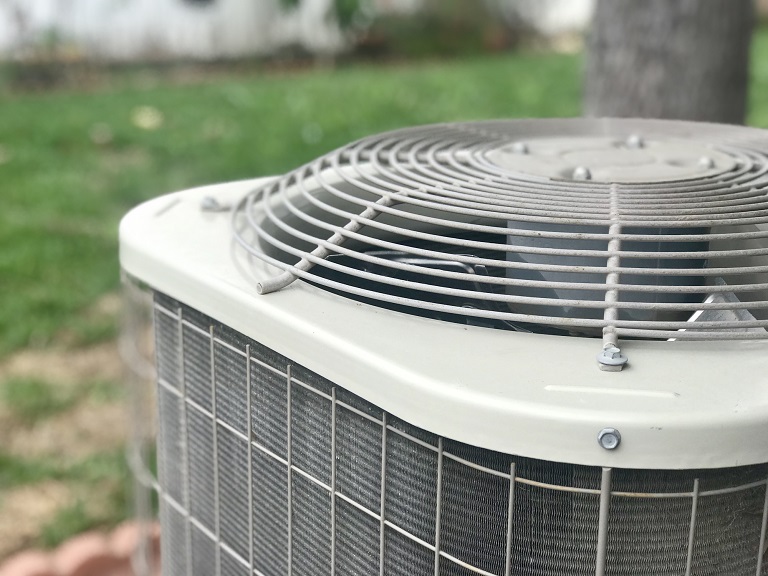
Discover the factors influencing air duct replacement costs in Atlanta, GA. Learn how to save money and make an informed decision for your home's comfort.
Keep your cool all summer long by ensuring your AC system is running at its best


You should inspect your AC once per year, ideally in the spring
An AC inspection includes checks for safety and cooling efficiency
HVAC technicians typically charge $50 to $200 for inspections
AC inspections can save you hundreds or thousands in energy bills and repairs
Inspections take up to an hour but could take 45 minutes longer if you need refrigerant
Yearly inspections extend your AC's lifespan, boost efficiency, and improve air quality
On a sweltering summer day, the last thing you want is your AC system to quit. You may have to wait a while for a handyperson to come by to repair it, leaving you to endure a stifling, stuffy home for days. Getting an annual AC inspection in the spring can save you from that scenario by ensuring your system is tuned up and free of dirt and damage. Your AC system will run more efficiently, too, lowering your energy bills all season long.
Scheduling an HVAC inspection every six months is crucial for ensuring your system operates efficiently and safely, preventing unexpected breakdowns and costly repairs. Regular inspections can also extend the lifespan of your system, providing comfort and peace of mind throughout the year.
Here’s what’s included in an AC inspection, along with how much it costs and how long it takes.
With an AC inspection, your local AC repair pro checks for safety, efficiency, and cleanliness. They'll also recommend any critical repairs or upgrades. Here's a complete checklist of everything an AC inspection includes.
Check surge protectors and fail-safes
Inspect safety devices and ensure proper operation
Test for all limit and safety controls
Ensure system is clean of debris or dirt that could pose hazards
Check for carbon monoxide leaks
Check coolant levels
Inspect evaporator coil and the temperature drop across the coil
Clean evaporator coil, if needed
Check that air temperature differential between supply and return is within range
Check refrigerant levels and operating pressure of refrigerant
Do not DIY any task related to refrigerant. Any mistake could lead to negative health impacts.
Check and clean condensate drain and drip pans
Assess the compressor and air handler
Inspect and test relays and pressure controls
Inspect and clean condenser coil
Inspect condenser fan blade
Check the blower motor
Assess all lines and coils, paying attention to disconnects within 10 feet of the unit and the integrity of suction line insulation
Check thermostat calibration and run a thermostat test
Inspect fuses and wiring
Ensure access panel is in place
Check supply voltage and amperage to all motors
Inspect and test capacitors and contactors, noting rust, corrosion, or burned contacts
Tighten electrical connections
Inspect disconnect box
Test the compressor amp draw, condenser fan motor amp draw, and blower motor amp draw
Clean and inspect outdoor disconnect, fan motor, and blades
Perform integrity tests for your thermostat, AC shut off, blower shut off, and wiring
Inspect air filters, clean and replace as needed
Evaluate proper airflow
Lubricate AC system
Assess equipment condition
Look for pest infestations
Inspect line set and connections for leaks
Evaluate duct seal at unit and secure panels
Inspect ductwork for air leaks and energy loss
Inspect service valves
Check out supply registers and return vents, cleaning blockages as needed
Flush drain line and inspect drain pan and switch
Clean and inspect condensate pump, if your system has one
Write a thorough diagnostic with recommendations and findings

Beyond ensuring your AC system doesn't break down on the hottest day of the year, an annual AC inspection has other advantages. Here are all the major benefits.
Extends the lifespan of your AC system
Helps your AC system run at optimal efficiency, saving you money on energy bills
Prevents issues and breaks during peak season
Catches repair issues early before they become larger expenses
Allows you to get a pulse on when you might need to replace your AC unit, based on performance, age, condition, and potential repairs
Increases safety, such as preventing carbon monoxide leaks
Improves air quality in your home
Offers you peace of mind
From average costs to expert advice, get all the answers you need to get your job done.

Discover the factors influencing air duct replacement costs in Atlanta, GA. Learn how to save money and make an informed decision for your home's comfort.

What you’ll pay in Atlanta, Georgia, for furnace repairs depends on many factors. Here’s a breakdown of what can go wrong and the cost to fix those issues.

Discover the factors affecting HVAC zoning system cost, energy savings, DIY options, and expert insights. Get informed about your home’s heating and cooling.

Discover the average air handler replacement cost, including labor and materials, plus expert tips to help you budget and save on your HVAC upgrade.

Not sure which kind of thermostat is best for your home? Here’s an overview of three types of thermostats so that you can choose the right one for you.

You’ll need to get creative if you want to run your portable AC in a windowless room. Here’s how to vent a portable air conditioner without a window.